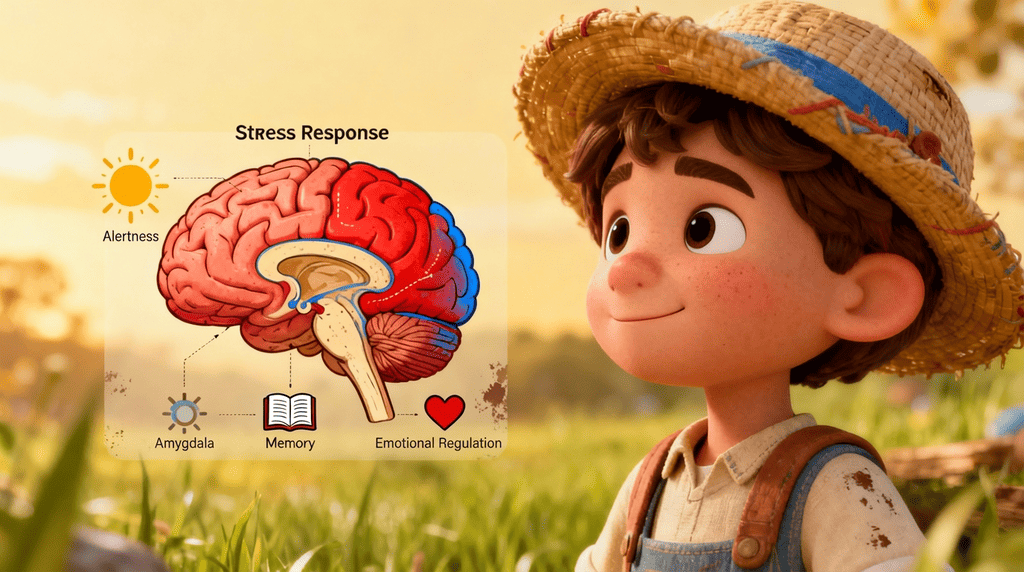Key Takeaways
- Multidisciplinary teams collaborate to provide comprehensive, person-centred care for children with complex needs.
- MDTs include doctors, nurses, social workers, therapists, support workers and other health professionals working together to provide tailored care.
- Benefits include improved health outcomes, enhanced communication among professionals, and a holistic approach to care.
Definition of Multidisciplinary Teams in Healthcare
Multidisciplinary teams are groups of professionals from diverse fields who collaborate to provide comprehensive care. These teams integrate the skills and expertise of health and care professionals, including doctors, nurses, social workers, mental health specialists, and other allied health professionals, to ensure a holistic approach to care. The primary goal of an MDT is to enhance the quality of care by addressing all aspects of a person’s health and well-being, facilitating person-centred care that considers people’s physical, emotional, and social needs.
In providing coordinated care for children with complex needs, MDTs play a crucial role in developing and implementing individualised care plans. By leveraging the collective knowledge and skills of various professionals, MDTs can deliver more effective and efficient care, ensuring that all aspects of a child’s health are managed compassionately. This collaborative approach not only improves health outcomes but also ensures that care is consistent, comprehensive, and tailored to the unique needs of each child.
Who is Included in the Multidisciplinary Team?
Key members often include doctors, such as paediatricians or general practitioners, who oversee the care and treatment decisions. Nurses are critical in day-to-day care, monitoring health status, and providing direct support. Social workers are integral to addressing social and emotional factors, ensuring that people and their families receive the necessary community services and support.
In addition to these core members, an MDT may include mental health professionals like psychologists or psychiatrists who address psychological or emotional support needs. Therapists, such as speech and language, occupational, and physical therapists, contribute specialised skills to aid development and rehabilitation. Pharmacists ensure the safe and effective use of medications, while dietitians offer tailored nutritional guidance.
Multidisciplinary Teams Roles and Responsibilities
In a multidisciplinary team, each member has specific roles and responsibilities that contribute to providing coordinated, comprehensive care:
- Doctors (Paediatricians/General Practitioners)
Lead care by diagnosing conditions, prescribing treatments, and making treatment decisions.
Develop and oversee individualised care plans tailored to each person.
- Nurses
Implement daily care plans, monitor health status, and provide emotional support.
Ensure continuity of care and act as a bridge between the person and other health professionals.
- Social Workers
Address social and emotional needs, coordinate access to community services, and provide counselling.
Assist families in navigating the healthcare system.
- Mental Health Professionals (Psychologists/Psychiatrists)
Address mental health challenges, provide therapy, and integrate emotional support into care plans.
- Therapists (Speech and Language, Occupational, Physical)
Offer specialised interventions to aid the development and rehabilitation of children with complex health needs.
- Pharmacists
Ensure medication regimens are safe and effective and provide guidance on administration.
- Dietitians
Develop nutrition plans that support the overall health and development of the child.
Effective communication and collaboration among all MDT members are essential for ensuring well-coordinated and holistic care. Regular team meetings and case reviews facilitate information sharing, progress updates, and care plan adjustments based on the person’s evolving needs. This team-based approach comprehensively enhances health outcomes and addresses all aspects of a child’s well-being.

Complex Needs in Children
Children with complex needs often require multifaceted care due to a combination of health, developmental, emotional, and social challenges. These needs arise from various factors that can significantly impact their daily lives and overall well-being. Common complex needs in children include conditions such as epilepsy and diabetes, which necessitate effective care planning and management.
Developmental and neurological differences, such as cerebral palsy and autism spectrum disorder (ASD), may also contribute to complex needs. These differences often require specialised interventions from speech and language therapists, occupational therapists, and physical therapists to support the child’s development and independence. Additionally, mental health challenges like depression and anxiety necessitate the involvement of mental health services to provide emotional support and therapeutic interventions.
Social and environmental factors, such as adverse childhood experiences, poverty, and lack of access to adequate healthcare and educational resources, further compound the complexity of a child’s needs.
Coordinated Care for Children with Complex Needs
Coordinated care for children with complex needs involves a comprehensive and collaborative approach to managing multifaceted challenges. By integrating the expertise of various health and care professionals, coordinated care ensures that all aspects of a child’s physical, emotional, and social well-being are addressed. This approach not only improves health outcomes but also enhances the overall quality of life for children and their families by providing seamless, person-centred care tailored to their unique needs.
Assessment and Evaluation
Assessment and evaluation are critical components in managing the care of children with complex needs. The process begins with a thorough and comprehensive evaluation by a multidisciplinary team (MDT) to identify the child’s specific needs. This assessment typically involves various diagnostic tests, medical examinations, observations, and input from parents or caregivers to gain a holistic understanding of the child’s challenges. The evaluation process helps to pinpoint the exact nature of the child’s needs and any contributing factors, enabling the team to develop a tailored care plan.
Regular and continuous reassessments are pivotal in monitoring the child’s progress and ensuring the ongoing effectiveness and relevance of the care provided. These ongoing evaluations, conducted by the MDT, allow for adjustments in interventions and strategies as needed, addressing any new challenges or changes. By consistently assessing and evaluating the child’s needs, the team can provide dynamic and responsive care that promotes optimal health and development.
Development of Personalised Care Plans
Based on the comprehensive assessment and evaluation, the MDT designs a care plan that addresses the child’s unique physical, social, developmental, and emotional requirements. These tailored care plans ensure that all aspects of their health and well-being are considered, supported and managed appropriately.
Personalised care plans include specific goals, interventions, and timelines, with input from various health professionals such as doctors, nurses, therapists, and social workers. The plan outlines the roles and responsibilities of each team member, ensuring a cohesive and coordinated approach to care. Additionally, the plan involves the care recipient and their family in the decision-making process, incorporating their insights and preferences to create a supportive and inclusive care environment.
Monitoring and Adjusting Care Plans Based on Progress
Monitoring and adjusting care plans based on progress is essential to ensure that the needs of children with complex needs are continually met. The multidisciplinary team regularly reviews the child’s progress through scheduled follow-ups, reassessments, and feedback from both the child and their family. This ongoing monitoring, which is a testament to the effectiveness of care, helps to identify any changes or emerging needs.
Adjustments to the care plan are made as necessary to accommodate these changes, ensuring that the interventions remain effective and relevant. This dynamic approach allows for flexibility in care, enabling the team to respond promptly to new challenges or improvements. By continually monitoring and adjusting the care plans, the MDT can provide adaptive and responsive care that optimises outcomes and supports the child’s overall development and well-being.
Benefits of Multidisciplinary Teams in Coordinated Care
Multidisciplinary teams bring together a diverse group of health and care professionals to provide coordinated and comprehensive care for children with complex needs. This collaborative approach offers numerous benefits, enhancing the quality of care and improving outcomes for children. By leveraging the expertise of various professionals, MDTs can address all aspects of a child’s health and well-being, ensuring a holistic and person-centred approach to care.
Improved Outcomes for Children with Complex Needs
The collaborative efforts of multidisciplinary teams significantly improve health outcomes for children with complex needs. By integrating the knowledge and skills of various health professionals, MDTs can develop and implement more effective care plans that address the child’s physical, social, developmental, and emotional needs. This comprehensive approach ensures that all aspects of care are managed effectively, leading to better overall health and, ultimately, an enhanced quality of life.
Enhanced Communication and Collaboration Among Healthcare Professionals
One of the key benefits of multidisciplinary teams is enhanced communication and collaboration among healthcare professionals. Regular team meetings, case reviews, and shared decision-making processes facilitate the exchange of information and ideas, ensuring that all team members are aligned in their approach to care. This improved communication helps to prevent misunderstandings and ensure that all aspects of the child’s care are well-coordinated and integrated.
Holistic Approach to Care
A holistic approach to care is another significant benefit of multidisciplinary teams. By considering the child’s physical, emotional, social, and developmental needs, MDTs can provide comprehensive and person-centred care that addresses all facets of the child’s well-being. This approach not only improves health outcomes but also supports the child’s overall quality of life. Importantly, by involving the care recipient and their family in the process and valuing their insights and preferences, MDTs ensure that care is tailored to each child’s unique needs and circumstances, fostering a sense of inclusion and support.
Get Bespoke Care Services with Nurseline Community Services
At Nurseline Community Services, we are committed to providing bespoke care tailored to the unique needs of each person we support. Our comprehensive approach ensures that we address the physical, emotional and social aspects of care. By collaborating closely with multidisciplinary teams, we leverage the expertise of various health and care professionals to deliver holistic, person-centred care. Our experienced therapy team includes Positive Behaviour Support (PBS) practitioners, occupational therapists, and speech and language therapists. They work alongside our support workers and nurses to create and implement personalised care plans that promote improved outcomes and foster well-being.
Our approach is rooted in collaboration and communication. We work seamlessly with MDTs to ensure that every aspect of care is well-coordinated and integrated. This teamwork enables us to provide a comprehensive support system that includes regular assessments, personalised care plans, and continuous monitoring and adjustments based on progress or changing needs.
By partnering with us, you gain access to a dedicated team committed to delivering the highest standard of care and enhanced quality of life for the people we support.
Nurseline Community Services operates in multiple locations, ensuring that our bespoke care services are accessible to a wide range of communities. Whether you need support for a loved one or are seeking to enhance your care services through professional collaboration, we’re here to help.
We welcome you to join us in our mission to provide exceptional, individualised care. Contact us today to learn more about our services and how we can work together to meet your unique needs.




